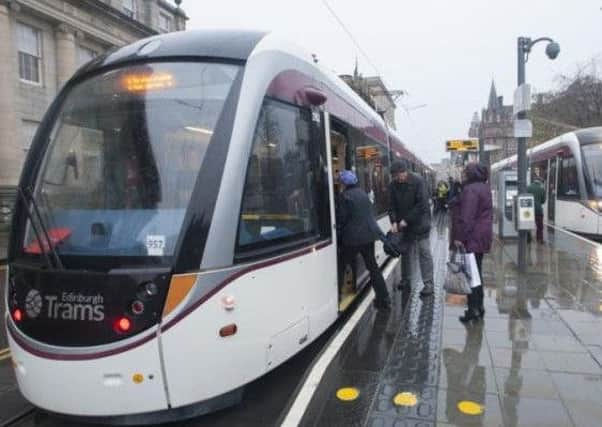Transport Scotland's withdrawal from tram project '˜a positive'


The Scottish Government has been criticised for taking its transport agency off the bodies overseeing the tram project in 2007 after the SNP failed in its bid to scrap the scheme.
But Mike Heath, who was project manager for the Croydon trams and part of a team which carried out a series of reviews of the Capital’s project, said he viewed the move, leaving the city council solely responsible, was a good thing.
Advertisement
Hide AdAdvertisement
Hide AdHe told the tram inquiry, chaired by Lord Hardie: “Having a single body that was responsible for delivery was absolutely a move in the right direction.
“I thought Transport Scotland withdrawal - this is a personal opinion - was positive for the project because of the risks of having a project reporting to two different groups of people with two potentially diverging sets of objectives.
“If you remove that risk by getting Transport Scotland to behave as an independent funder, overseeing its investment, that produces some certainty that would not be there if they were part of project teams.
“I do understand there was some expertise within Transport Scotland that could have assisted the project later on when it got into difficulty, but that could have been done offline.
Advertisement
Hide AdAdvertisement
Hide Ad“But from a basic set of arrangements between the parties I thought Transport Scotland taking a very clear, clinical view as a funder was the best thing that could have happened.”
Mr Heath conducted a series of reviews between 2006 and 2010 as part of a team from the Office of Government Commerce, which gives procurement guidance to pubic sector organisations.
Asked with hindsight what might have improved the project, he said among changes which would have helped were a less adversarial approach, better oversight of TIE and tighter control of utility diversion works.
He utility works in Croydon had been completed on time and within budget.
Advertisement
Hide AdAdvertisement
Hide Ad“We left the utilities to do their own works, agreed a sum with them and had a consultant advising and co-ordinating. We had just one of my staff managing, liaising and dealing with health and safety.
“We learned early on if you keep most of the management out of the process
the guys on the ground are much more effective at getting in with it than having a large number of people turning up now and again and telling them how to do it.”
And he said there had been good relationships on the project.
Advertisement
Hide AdAdvertisement
Hide Ad“The moment you start talking about ‘the contractual process’ it’s the men in suits - and once that happens it doesn’t usually speed things up.”
But he acknowledged central Croydon was not as complex as central Edinburgh.
“We may have been a bit more lucky than apparently in Edinburgh that we were able to pretty much identify all the key utilities that needed moving.”
